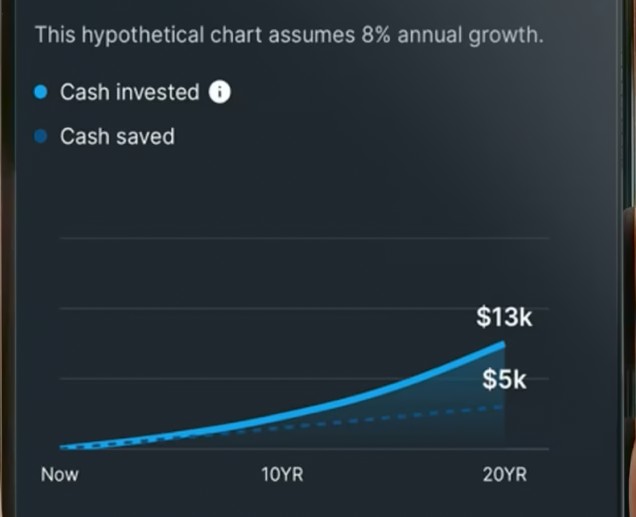How much to save each month is one of the most common questions for people trying to take control of their finances. And it makes sense—between rising living costs, unexpected expenses, and tight paychecks, finding the “right” savings amount can feel overwhelming.
But here’s the good news: you don’t need to be a financial expert or make six figures to build savings. With a clear plan, you can start where you are and grow from there.
In this guide, we’ll break down exactly how much you should be saving each month based on your income, goals, and lifestyle. Plus, you’ll get expert tips and motivation to stick with your savings plan—even when life throws curveballs.
📊 Why Saving Money Monthly Matters More Than Ever
Monthly saving is more than just a budgeting checkbox—it’s a safety net, a stress reducer, and a stepping stone to financial freedom.
Here’s why it matters in 2025:
-
Inflation is real: Prices for essentials like groceries, rent, and utilities have gone up.
-
Emergencies happen: A car repair, medical bill, or job loss can derail your finances fast.
-
Peace of mind: Knowing you have money set aside reduces anxiety and helps you sleep better.
Think of savings like a muscle—the more you train it, the stronger your financial future becomes.
💰 So, How Much Should You Save Each Month?
✅ The 50/30/20 Rule
A popular rule of thumb suggests:
-
50% of your income goes to needs (rent, bills, groceries)
-
30% to wants (dining out, entertainment)
-
20% to savings and debt repayment
If you earn $3,000/month after tax:
-
Save at least $600/month
✅ This rule is flexible—especially if you’re on a tight budget. Start smaller if needed.
📈 Monthly Savings by Income Bracket
Here’s a breakdown of how much to save each month based on different take-home incomes:
| Monthly Income | 20% Savings Target | Ideal Range |
|---|---|---|
| $2,000 | $400 | $100–$400 |
| $3,000 | $600 | $200–$600 |
| $4,000 | $800 | $300–$800 |
| $5,000 | $1,000 | $400–$1,000 |
| $6,000+ | $1,200+ | $500+ |
🎯 Tip: If 20% feels too much right now, start with 5% or even 2%. The habit matters more than the amount.
🎯 What Are You Saving For? Match Your Goals
Your savings target should also depend on your goals. Here’s how to prioritize:
1. 🛑 Emergency Fund
Aim to save 3–6 months of expenses. Start with a $1,000 mini-goal.
2. 🏠 Big Purchases
Planning a vacation, car, or wedding? Set a monthly goal and timeline.
3. 🔐 Retirement
If your job offers a 401(k), contribute enough to get the full match.
If not, open a Roth IRA and aim for $100–$500/month if possible.
4. 🧒 Family & Kids
Saving for a baby or college? Open a 529 plan and automate monthly deposits.
🧠 Knowing what you’re saving for creates emotional motivation.
🔁 How to Automate Your Monthly Savings
Automation is your best friend. Here’s how to make it work for you:
-
Direct Deposit Split: Ask your employer to split your paycheck between checking and savings accounts.
-
Recurring Transfers: Set up an automatic transfer every payday.
-
Round-Up Apps: Apps like Qapital or Acorns round up your purchases and save the difference.
🧩 Out of sight = out of temptation. Automation = no excuses.
❤️ Emotional Benefits of Saving Monthly
Saving is about more than just numbers—it changes how you feel and how you live.
✅ Confidence
Each month you save proves to yourself that you’re in control.
✅ Less Anxiety
Knowing you can handle surprise expenses brings peace of mind.
✅ Empowerment
You’re no longer reacting to life—you’re planning it.
💬 “Saving money helped me sleep better. For the first time, I wasn’t scared of my bank account.” —A reader from Ohio
📉 Struggling to Save? Here’s What to Do
If you’re living paycheck to paycheck or struggling to hit your savings target, try these:
1. Review Subscriptions
Cut streaming, boxes, or memberships you don’t use.
2. Cook at Home
Eating out 3x/week can cost you $300–$500/month.
3. Use Cash Envelopes
Helps you stick to a budget and avoid overspending.
4. Side Hustle
An extra $100–$200/month from freelancing, pet sitting, or tutoring goes a long way.
5. Prioritize Needs Over Wants
Ask yourself: “Do I need this now or can I save for it?”
🙌 Every dollar you save is a step toward freedom.
💡 Expert Tip: Track Your Progress
Visual tools make saving feel real. Use:
-
A free savings tracker PDF
-
Google Sheets
-
Budgeting apps like YNAB or Mint
Post it on your fridge or add it to your planner—it’ll keep you accountable.
🚫 Common Saving Mistakes to Avoid
-
All or Nothing Thinking: Even $10/month is better than $0.
-
Waiting for “More Income”: Start now with what you have.
-
Dipping into Savings Frequently: Keep it in a separate account or use a high-yield savings account.
-
No Emergency Fund: Before investing, cover the basics.
📅 2025 Monthly Savings Challenge (Optional)
Want to stay motivated? Try this:
| Month | Save Amount |
|---|---|
| January | $50 |
| February | $100 |
| March | $150 |
| … | … |
| December | $600 |
Gradually increase your monthly savings for a $3,900 goal!
✅ Final Thoughts: Start Small, Think Big
So, how much to save each month? The answer: whatever you can, consistently. Whether it’s $25 or $500, the key is making saving a habit—not a headache.
Your money is your future. Every dollar saved today is a door opened tomorrow.
🎯 Start now. Automate it. Track it. Celebrate your wins.
You’ve got this.












